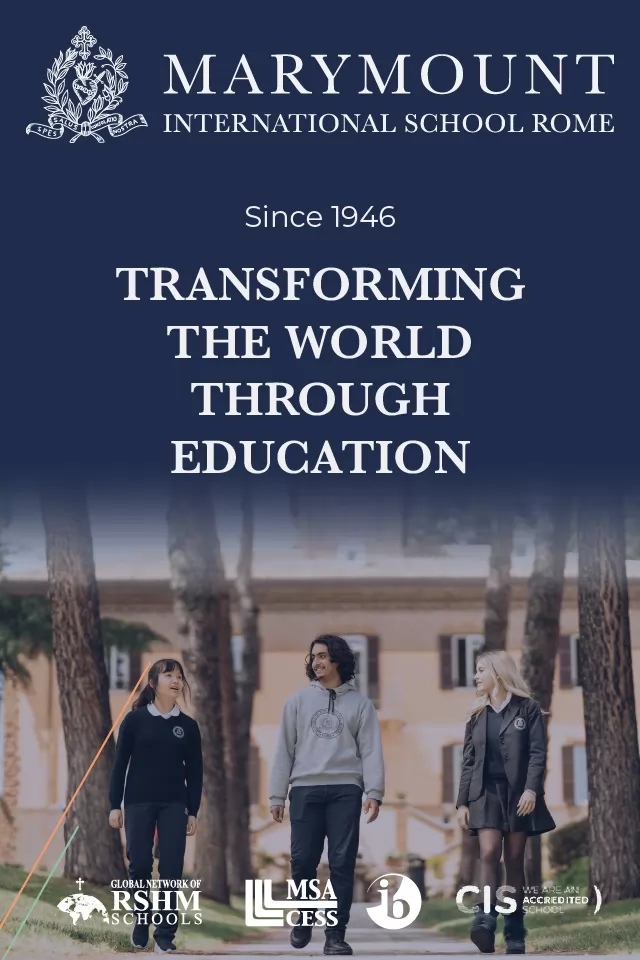2021 marks 700 years since the death of Dante Alighieri, the Father of the Italian Language.
By Andy Devane
Italy is marking the 700th anniversary of the death of the mediaeval poet and philosopher Dante Alighieri, known as the Father of the Italian language, with hundreds of commemorative events taking place throughout 2021.
Unveiling the programme on 6 March, Italy's culture minister Dario Franceschini made reference to the last verse of Inferno (Hell) from The Divine Comedy: 'E quindi uscimmo a riveder le stelle.'
"We are all waiting to see the stars again," said Franceschini, "listen to music, see theatre, watch cinema together in the wonderful Italian piazze."
Among the highlights of the programme of events will be Oscar-winning actor and director Roberto Benigni reading a canto from La Divina Commedia at the Quirinal Palace in Rome, in the presence of Italy's president Sergio Mattarella.
To See the Stars Again is the title of a virtual exhibition, launched at the start of 2021 by the Uffizi Gallery in Florence, featuring 88 fragile drawings for The Divine Comedy, Dante's epic work completed a year before his death in 1321.
Hell, purgatory and heaven
Depicting scenes of hell, purgatory and heaven, the sketches by the 16th-century Renaissance artist Federico Zuccari passed through the hands of the powerful Orsini and Medici families before becoming part of the Uffizi collection in the 18th century.
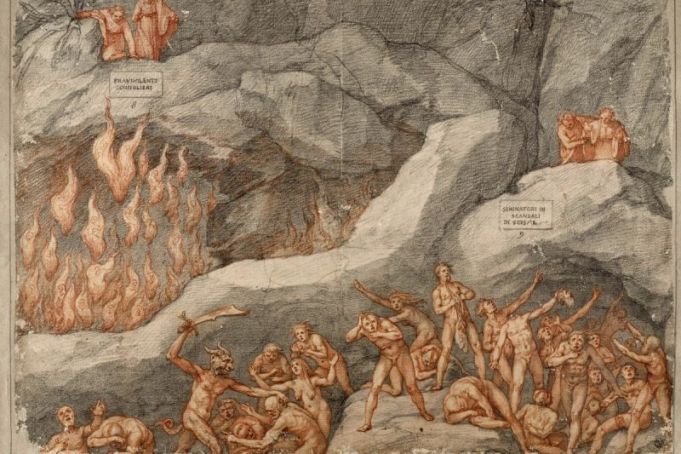
The precious drawings, presented online in high definition, are normally only available to view by a handful of scholars and have been seen by the public just twice: first in 1865 and again in 1993.
Dante died before the Black Death swept through Italy however, seven centuries later, another pandemic is upsetting the programme of events in his honour. At the time of writing, Tuscany is classified as a medium-risk orange zone under Italy's tiered system of covid-19 restrictions, after the museums of Florence enjoyed five weeks of being open under the less-strict yellow zone rules.
The covid-19 regulations matter little in the case of the online Dante exhibition at the Uffizi, now closed to visitors. However Tuscany's colour-coded demotion came just days after Florence's town hall in Palazzo Vecchio, put Bronzino's allegorical portrait of the mediaeval poet on display.
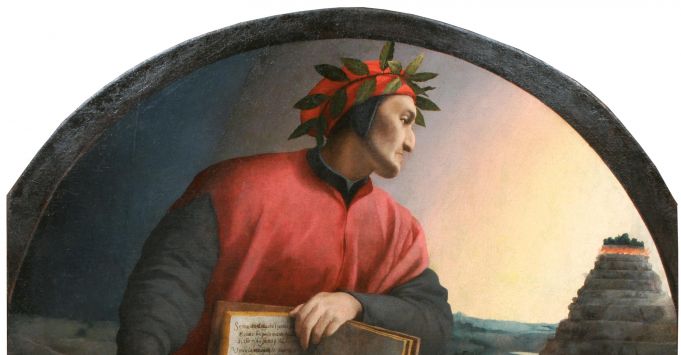
The work was commissioned by the Florentine banker Bartolomeo Bettini in the early 1530s, according to Giorgio Vasari in his Lives of the Artists. It is hoped that the painting can go back on public display before the exhibition is scheduled to end on 31 May but for now Palazzo Vecchio remains closed.
As Florence honours one of its most famous sons, perhaps the Tuscan capital is keen to make up for the way it treated Dante in the past. A descendant of the poet made headlines last month by dusting off a 700-year-old court case, keen to restore the good name of his esteemed forebear.
Astrophysicist Sperello di Serego Alighieri and law professor Alessandro Traversi are seeking a pardon of sorts for Dante who – after failing to appear in court in 1302 on charges of fraud, perjury, extortion and embezzlement – was sentenced to be burned at the stake.
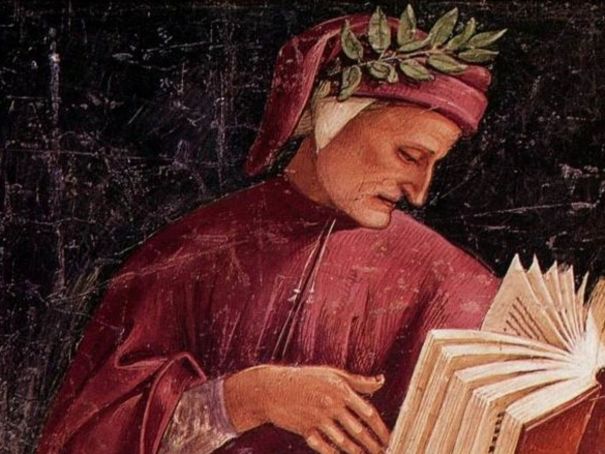
Rather than face this terrible fate Dante chose to leave the city of his birth, never to return. His descendant told Italian newspaper Corriere della Sera that the trial was "politically motivated" and the “death penalties inflicted on my dear ancestor are unjust.”
In May a mock retrial in the form of a conference will take place in Florence, with historians, linguists and lawyers examining whether Dante's sentence was the result of regular judicial proceedings or the “poisoned fruit of politics,” according to Traversi.
Florence's loss was Ravenna's gain, for it was in this city near the Adriatic coast that Dante settled for the remaining years of his life. It was here that he completed the work which would guarantee him eternal fame.
But why exactly did La Divina Commedia make such an indelible impression on both literature and theology?
The long narrative poem represents a 14th-century vision of the afterlife, describing Dante's journey through the three realms of the dead: Inferno (hell), Purgatorio (purgatory), and Paradiso (heaven).
Dante, who began composing the groundbreaking trilogy in or around 1308, wrote the poem's 14,233 lines in the vernacular, opting for the Tuscan dialect which was accessible to the masses rather than the traditional Latin reserved for the most educated readers.
Dante's unorthodox approach paved the way for important Italian writers such as Petrarch and Boccaccio, while his depictions of Hell, Purgatory and Heaven had a profound influence on western art, from Sandro Botticelli to William Blake.
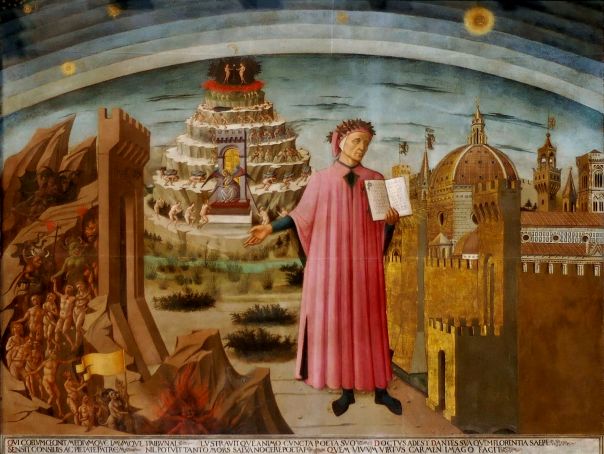
The first printed edition of the book was published in Foligno on 11 April 1472, with 14 of the original 300 copies still in existence.
Today Dante's masterpiece is widely considered to be the pre-eminent work in Italian literature and one of the greatest works of world literature.
There are few poets in western literature, from the Romantics to the contemporary, who have not been inspired by Dante.
Dante's milestone has also prompted Italy to create a Museum of the Italian Language, in Florence, with works to begin this year after being stalled by covid-19. The museum will be housed in a wing of the S. Maria Novella complex that played a decisive role in Dante's studies and in writing his masterpiece.
With funding of €4.5 million from Italy's culture ministry, the new museum will outline the history and evolution of the Italian language and celebrate Italy's great writers such as Boccaccio, Dante, Petrarch and Machiavelli. The museum is to market itself on an international level and will adopt an interactive approach with the aim of attracting younger visitors.
Dante continues to reach new audiences thanks to literary initiatives streamed on radio and television. Following in the footsteps of the memorable readings by Roberto Benigni a few years ago, a new project emerged during lockdown last year when actress and theatre director Lucilla Giagnoni dedicated herself to Dante in the north-west Italian city of Novara. With special permission to leave her home, Giagnoni sat on the stage of Teatro Faraggiana for 100 days, with her husband on sound and daughter filming, as she read a “canto a day” from March to June.
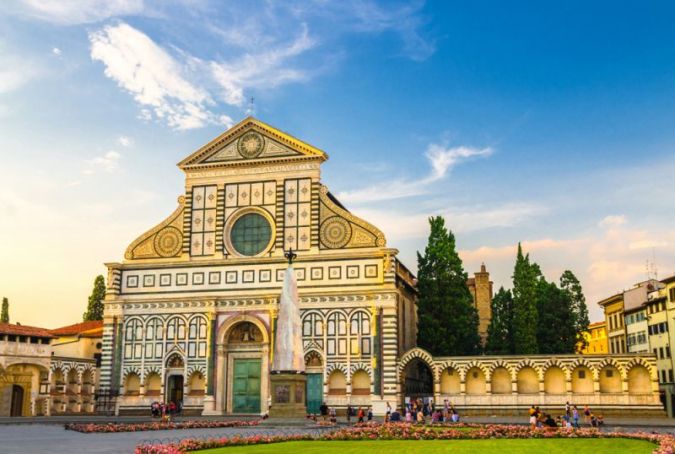
Now her project, which saw up to 70,000 viewers tuning in during lockdown, makes its debut on national television. Each evening until 25 March, RAI5 will screen three verses a day, with The Divine Comedy being read in its entirety on Italian television.
The epic work will also be read in Milan's Duomo, from 7 April until 15 July, in 100 canti in 100 giorni, a collaboration between the musicians of Teatro alla Scala and the students of the Piccolo Teatro di Milano.
Dante is hitting the radio airwaves too with the poet's verses being streamed every Monday at 11.00, 13.00, 16.00 and 18.00 on Radio Dante, via www.radiomi.al.
Wordsmiths and Dante fans are also being entertained by Accademia della Crusca in Florence, the world's leading authority and research centre on the Italian language. Every day this year it is publishing a new word or expression coined by the poet, accompanied by an explanation, on its website.
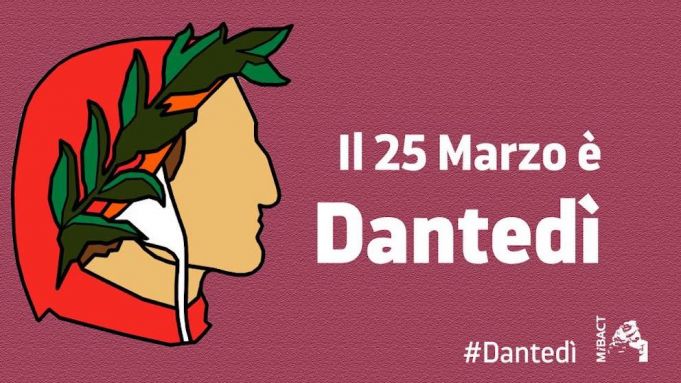
This month will see the second, bumper edition of Dantedì, a national day dedicated to Dante.
Launched last year by Italy's culture ministry, Dantedì is held annually on 25 March, the date given by scholars for the start of the journey to the afterlife in The Divine Comedy. Culture minister Dario Franceschini effused: "Dante reminds us of many things that hold us together: Dante is the unity of the country, Dante is the Italian language, Dante is the very idea of Italy."
Many of the anniversary events will be staged in Ravenna, where the exiled poet died of malaria in 1321, aged 56, and where his tomb can be visited at the Basilica di S. Francesco. From virtual tours to lectures, events are planned in more than 70 Italian towns and villages connected to the poet either through his writings or personal life.
One of the biggest events is the ambitious exhibition project Dante: The vision of art to be held in Forlì from 12 March until 4 July, subject of course to covid rules.
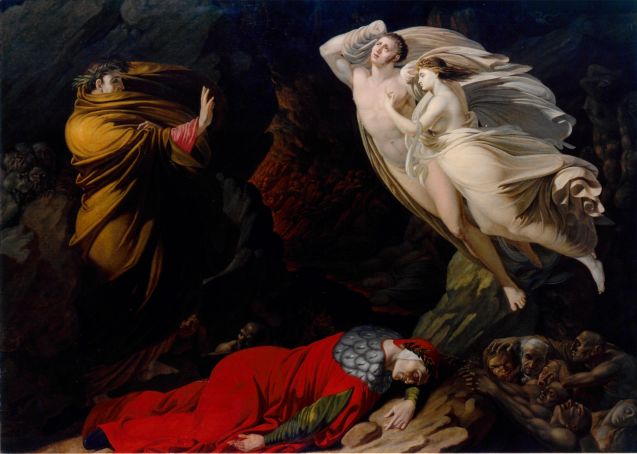
"A great show will be dedicated to the Supreme Poet in a strongly symbolic place, because it was in those lands that the author of The Divine Comedy spent several years of his exile" – said Eike Schmidt, director of the Uffizi which is co-organising the exhibition.
The display will include portraits of Dante by Andrea del Castagno and Pontormo’s Expulsion from Paradise, alongside works by Michelangelo and Zuccari.
Anno dantesco
To keep up to date with Italian events for the anno dantesco as they are announced, follow #Dante2021 on social media.
However it is worth remembering that it is not just Italy making a fuss. Commemorative events are taking place around the world, in multiple languages, making Dante's writings accessible on a scale that the great poet could never have imagined.
A shorter version of this article was published in the March 2021 edition of Wanted in Rome magazine. Cover illustration by Sadie Devane.
#Dantedì, il ministro @dariofrance: «Benigni leggerà Dante al @Quirinale. Centinaia di iniziative in tutta Italia promosse dal Comitato per le celebrazioni». https://t.co/kGEUM7Awmt / #Dante700 #Dante2021 pic.twitter.com/RJ4oyCgCse— Ministero della cultura (@MiC_Italia) March 6, 2021






